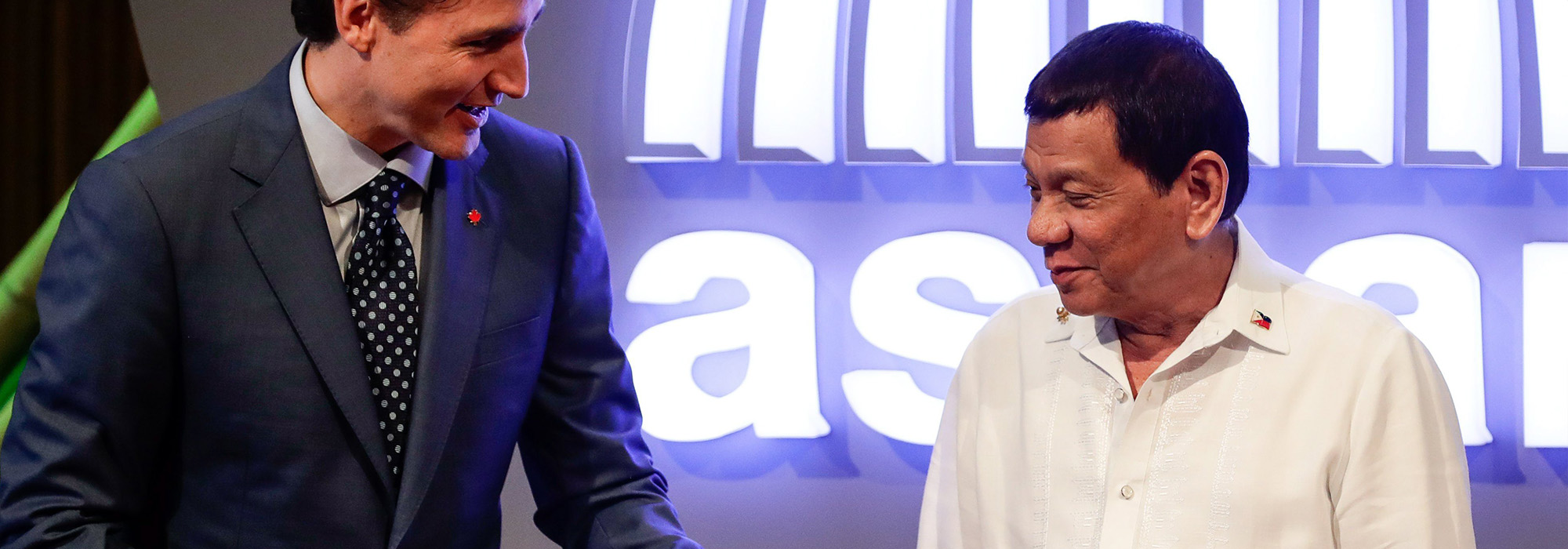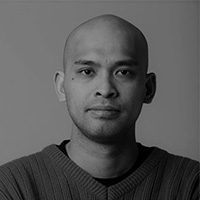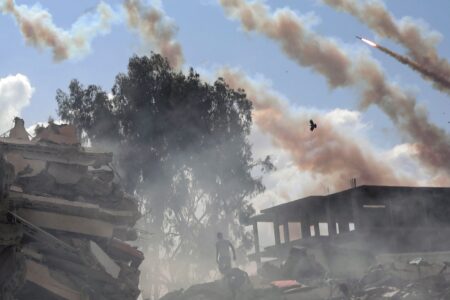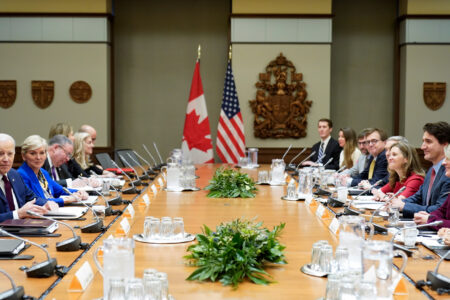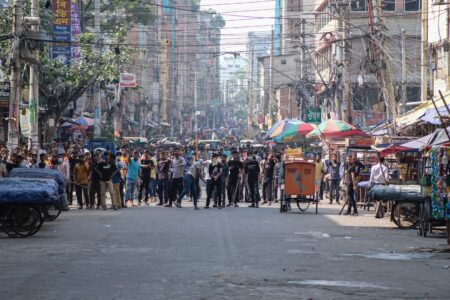
Under the guise of making Philippine President Rodrigo Duterte account for his administration’s human rights abuses, Prime Minister Justin Trudeau last month said his government would review a $300 million helicopter trade deal with the Southeast Asian nation. Trudeau’s decision wound up highlighting the fact that in the real world — and especially in Asian emerging markets — trying to reconcile human rights with trade and foreign policies is as futile as mixing oil with water.
Trudeau had declared that a further review of the deal was necessary before the helicopters could be delivered, citing the potential that they would be used for more than just noncombat activities. Duterte responded by cancelling the deal.
And yet, if the Armed Forces of the Philippines (AFP) had decided to use the 16 helicopters in combat against insurgents, Trudeau would have found an unlikely — but convenient and practical — anti-terrorism ally in Duterte. Letting the deal go through without hiccups would have also helped mend a relationship that got off to a rocky start following Trudeau’s open criticism of Duterte’s human rights record during his visit to the Association of Southeast Asian Nations (ASEAN) summit last November in Manila.
Just before the ASEAN summit, ISIS terrorists, under the banner of the Philippines-based Abu Sayyaf Group (ASG), boldly took over Marawi City, a major economic hub in the predominantly Muslim south. ASG was previously a regional Al-Qaeda affiliate, but it pledged allegiance to ISIS following the latter’s early victories in the Middle East. It was responsible for the beheadings of two Canadians, Robert Hall and John Ridsdel, in the spring of 2016 and is on Canada’s List of Terrorist Entities.
In the wake of the ensuing five-month battle that left more than 1,000 people dead, including the main perpetrators and more than 100 soldiers, much work needs to be done beyond rebuilding the battered city. The Duterte government and its successors need modern military equipment to combat Islamic extremists and other lawless elements that have thrived for decades in the porous southern part of the archipelago.
Trudeau should realize that using these choppers against ISIS sympathizers and other terrorist groups that use kidnappings and beheadings as part of their normal economic enterprise would put Canada and the Philippines on the same page with regard to terrorism. At home, Trudeau’s acceptance of using these aircraft against ISIS and religious extremism in general — without having to deploy Canadian military personnel on the ground — might alleviate the heat his Liberal Party is getting for allowing returned Canadian ISIS fighters to reintegrate into Canadian society.
The Philippine chopper deal represented a miniscule amount compared to the $15-billion light-armoured vehicle deal with Saudi Arabia. Despite the same concerns raised on the possible use of the LAVs against Saudi citizens, the deal nonetheless went through. The cancellation of the helicopter deal suggests that Trudeau is clearly playing favourites and exercising a double standard toward countries that don’t serve what he regards as Canada’s interests.
The hypocrisy of Trudeau’s LAV deal with Saudi Arabia is mirrored in his trade policies with Vietnam and China, whose governments are similarly antagonistic to his human rights agenda. Yet these two countries are part of the recently signed Comprehensive and Progressive Agreement for Trans-Pacific Partnership (CPTPP), which International Trade Minister François-Philippe Champagne has touted as “the right deal.”
While Trudeau tries to put Duterte in his place and to imply that the world agrees with him about the immutable relationship between human rights, and foreign and trade policies, he should take a closer look at the aforementioned trading partners and properly assess the validity and viability of his policies. He would quickly discover that the Western concept of human rights doesn’t exist in the vocabulary of one-party governments.
Despite the shortcomings the Philippines has in the area of human rights, the country has nonetheless made progress toward democracy. Its constitution has been patterned after the US presidential system, as a result of American colonization of the country from 1898 to 1946. It has also shown resilience in performing under a free-market system with an annual GDP hovering above 6 percent since 2010. Maybe the Southeast Asian country is, echoing Champagne’s words, not “the right deal” right now, but nonetheless a better deal in the long run. Trudeau should also be reminded that Duterte, whom he loathes, was democratically elected.
Now that the chopper deal with Canada has been axed, the Philippines will have no problem turning to China and Russia, either of which will be more than happy to fill the void without attaching conditions. The Philippine leader’s rhetoric against the West make for good fodder in the media, so any replacement deal will not only give Trudeau a run for his money, it will also give the foul-mouthed Duterte the last laugh.
Photo: Prime Minister Justin Trudeau talks to Philippine President Rodrigo Duterte before the opening ceremony of the 31st Association of Southeast Asian Nations (ASEAN) Summit in Manila, Philippines, November 13. 2017. EPA/MARK R. CRISTINO / POOL
Do you have something to say about the article you just read? Be part of the Policy Options discussion, and send in your own submission. Here is a link on how to do it. | Souhaitez-vous réagir à cet article ? Joignez-vous aux débats d’Options politiques et soumettez-nous votre texte en suivant ces directives.



